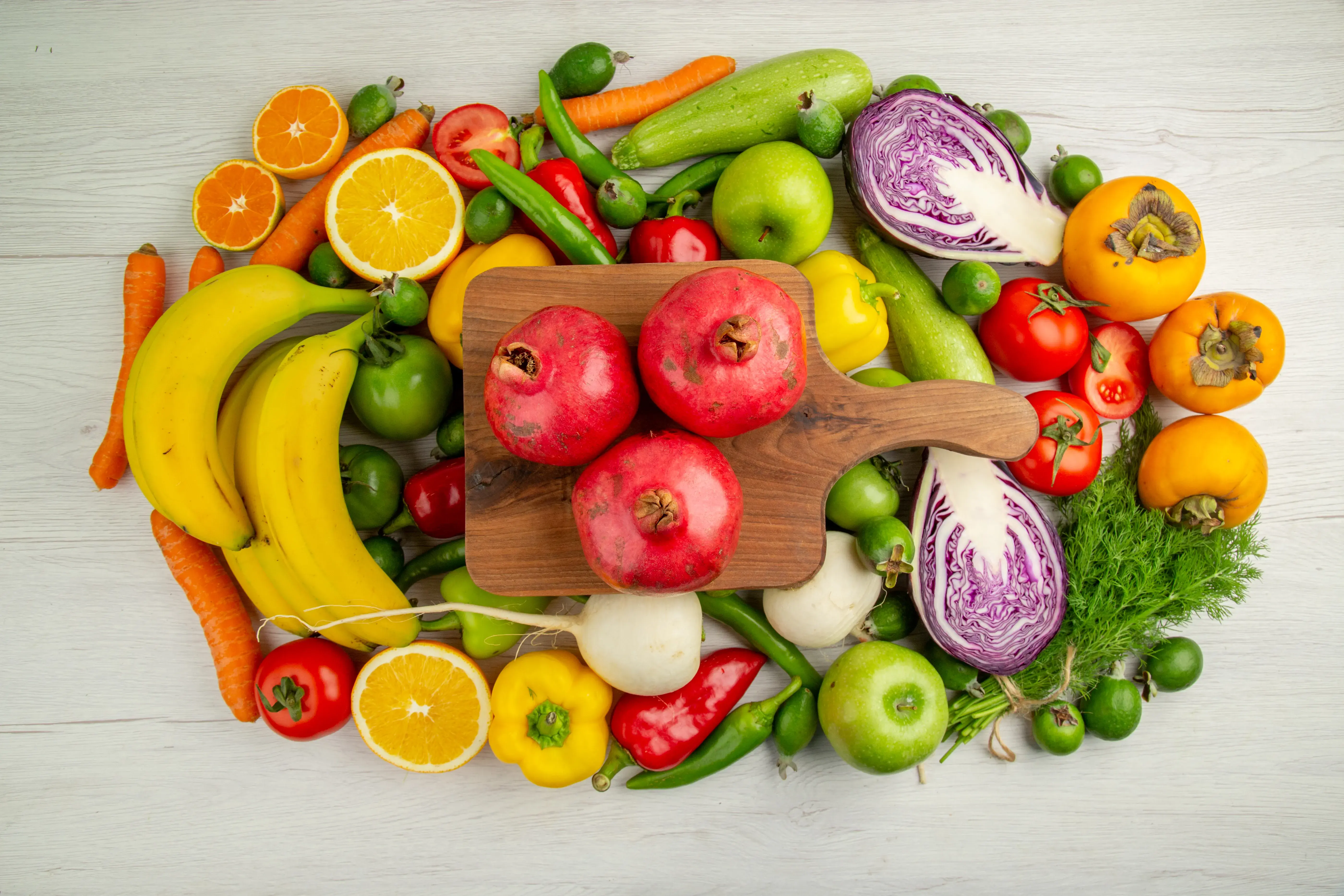Pineapple is a healthy and delicious fruit with unique properties difficult to find anywhere else. If we go deep into its medical consistency, it contains bromelain, a proteolytic enzyme type. Although bromelain is found in the core of the pineapple in very little quantities, it is the type of compound that is highly refused to be taken by pregnant women. So, "Can I eat Pineapple while Pregnant?" Is it safe?
According to medical studies, bromelain tablets are not recommended during pregnancy. This particular enzyme breaks down the protein in the body and leads to abnormal bleeding. Bromelain is actually in the flesh of the pineapple, which is what we eat. The piece of bromelain in a single serving spoon of pineapple will not likely affect your pregnancy.
Can I eat pineapple during pregnancy first trimester?
Dietary Advice for Pregnant Women It is generally recommended that pregnant women refrain from eating pineapple while they are pregnant to reduce their likelihood of experiencing a miscarriage or going into labor prematurely. The supposed danger of eating pineapple while pregnant seems more of a myth than anything else, as there are not much scientific data to support the claim.
Read Also: 15 Foods To be Avoided in Pregnancy
What are the potential risks of adding pineapple to your diet while pregnant?

Consuming 5-10 small pieces of pineapple fruit may not be dangerous. It helps you meet your baby sooner by inducing healthy content to your baby. Eating large amounts can produce dangerous effects in a sense. It can induce the effect of enzymes on the baby, and the baby may get disturbed, causing vaginal bleeding in the mother. Be cautious if you have a sensitive stomach or if your body exhibits symptoms such as acidity, vomiting, headache, or heartburn.
Consuming this delicious fruit in moderation is advisable if you doubt its side effects on your body. However, pineapple is a good source of fiber and many other nutrients. Suppose you are pregnant and eat pineapple fruit in large quantities. It means you are taking large quantities of bromelain that can stimulate miscarriage. It may cause some skin reactions. Call your doctor or gynecologist immediately if you experience any allergic symptoms after snacking. Possible allergy signs include:
- itching or swelling in your mouth
- burning or sore tongue
- skin rash
- asthma
- congestion or runny nose
- Other allergy symptoms include wheezing, coughing, vomiting, diarrhea, or low blood pressure.
If you are allergic to pineapple, these reactions might happen during pregnancy within minutes of eating pineapple. Also, it is said that you are more likely to be allergic to this fruit if you're allergic to pollen or latex.
What fruits and vegetables should I eat while pregnant?
It is ideal to consume every fruit in a moderate amount once a day. Consuming fruits is the right kind of nutrient. Since a pregnant woman carries a new life in her womb, she will likely feel more hungry than usual. It is recommended that pregnant women must have meals in small portions to avoid feeling hungry. Pregnant, you must consume fruits and vegetables, a rich energy source, vitamins, minerals, and fiber. 
Read Also: Healthy Pregnancy Meals: Recommended Diets for Pregnant Women
List of Fruit to Include in Pregnancy Diet
A few fruits can be consumed during pregnancy to help your growing baby.
- Watermelon - This fruit is rich in water content and helps maintain electrolyte balance.
- Bananas - This fruit is rich in carbohydrates, prevents anemia, and helps maintain colon health.
- Oranges - This fruit keeps you hydrated and is rich in Vitamin C.
- Avocados - This fruit is rich in healthy fats and contains folate, which promotes healthy growth of the baby's brain in the fetus. They are rich in fiber, vitamin K, vitamin B, magnesium, and potassium.
- Apples - This fruit is rich in fiber, vitamins, and potassium.
Try including fruits in your diet and maintain your health in check.
List of Vegetables to Eat During Pregnancy
Many vegetables ensure your body continues to receive a perennial supply of nutrients.
- Sweet Potatoes - Sweet potatoes are excellent sources of vitamins A, B, and C. For instance - you can consume sweet potatoes in your pregnancy diet in baked, boiled, or grilled forms.
- Beetroot - Beetroots are rich in vitamins and fiber. They also help strengthen the immune system. For instance - Drinking beetroot juice is highly advised to be consumed by pregnant women to reduce high blood pressure.
- Bell peppers - This vegetable is high in vitamins and dietary fiber. For instance - you can consume raw bell pepper which is safe to eat during pregnancy.
- Broccoli - This vegetable contains vitamins C, K, and folate. They also prove beneficial for easing constipation. For instance - You can consume broccoli soup or stir-fry the broccoli with some veggies, corn, or carrots using olive oil.
- Green peas - This vegetable is rich in vitamins C, K, and fiber.
- Dark leafy greens - This vegetable is high in fiber, carotenoids, and folate. For instance - You can consume spinach soup. It is known as the golden food for pregnant women.
- Tomatoes - This vegetable is rich in vitamins C and K and biotin. For instance - You can consume tomato juice to improve your energy levels and lower your weakness.
Also, Read Pregnancy Cramps vs Period Cramps.
Important Diet Tips for Pregnancy -
It is essential to eat a healthy diet when pregnant. Following are the dietary tip to ensure a healthy delivery -
- For this, you should consume the proper foods in the right amounts and at the right times.
- Anything harmful can damage the mother and baby and create a variety of issues. Pregnant women should avoid consuming pineapple during pregnancy.
- Follow a healthy diet to prevent the risk of miscarriage or preterm labor.
- The risk of eating pineapple during pregnancy is more of a myth with not much scientific evidence against it.
What about the diet that involves pineapple?
Pineapple is the kind of fruit that can attract anyone to eat. It smells different and gives the instinct to eat to all ages. It is also thought to be a good fruit when you are ill or having any stomach-related issues. Also, it is said that pineapple is safe and secure to use while you are pregnant. Many people believe that it can lead to miscarriage and vaginal bleeding while a woman is carrying a baby in her womb. However, it is a myth. No scientific evidence can support this myth and reveal that pineapple is not for pregnant women.
Also, Read What is the Effect of Abortion Pills on Future Pregnancy?
But what about the enzyme bromelain, which is found in pineapple?
Pineapple indeed consists of bromelain- a type of enzyme. This enzyme is found in the core of pineapple fruit or the flesh we eat. However, the amount of bromelain in one serving of pineapple is not likely to affect pregnancy. It is advisable to eat the fruit in minimal quantities if you doubt the fruit's choice while pregnant. However, pineapple is the source of 100% recommended vitamin C intake for any pregnant woman. Pineapple is an essential source of several nutrients like:
- Folate
- Magnesium
- Manganese
- Copper
- Vitamin B6
- Iron
All these nutrients are essential for the healthy growth of the baby while you are pregnant. If you want to add pineapple to your pregnancy and don't know where to start, you can add the fruit to your different diet plans, like in yogurt, in a smoothie, in ice cream, in a veggie salad, and a lot of other dishes.
Read Also: 6 Pre Pregnancy Diet For Women
Frequently Asked Questions
Can you eat pineapple while pregnant?
Yes, you can eat pineapple in moderation during pregnancy; it's a safe fruit, but excessive consumption should be avoided due to the enzyme bromelain, which can soften the cervix.

Reviewed by








